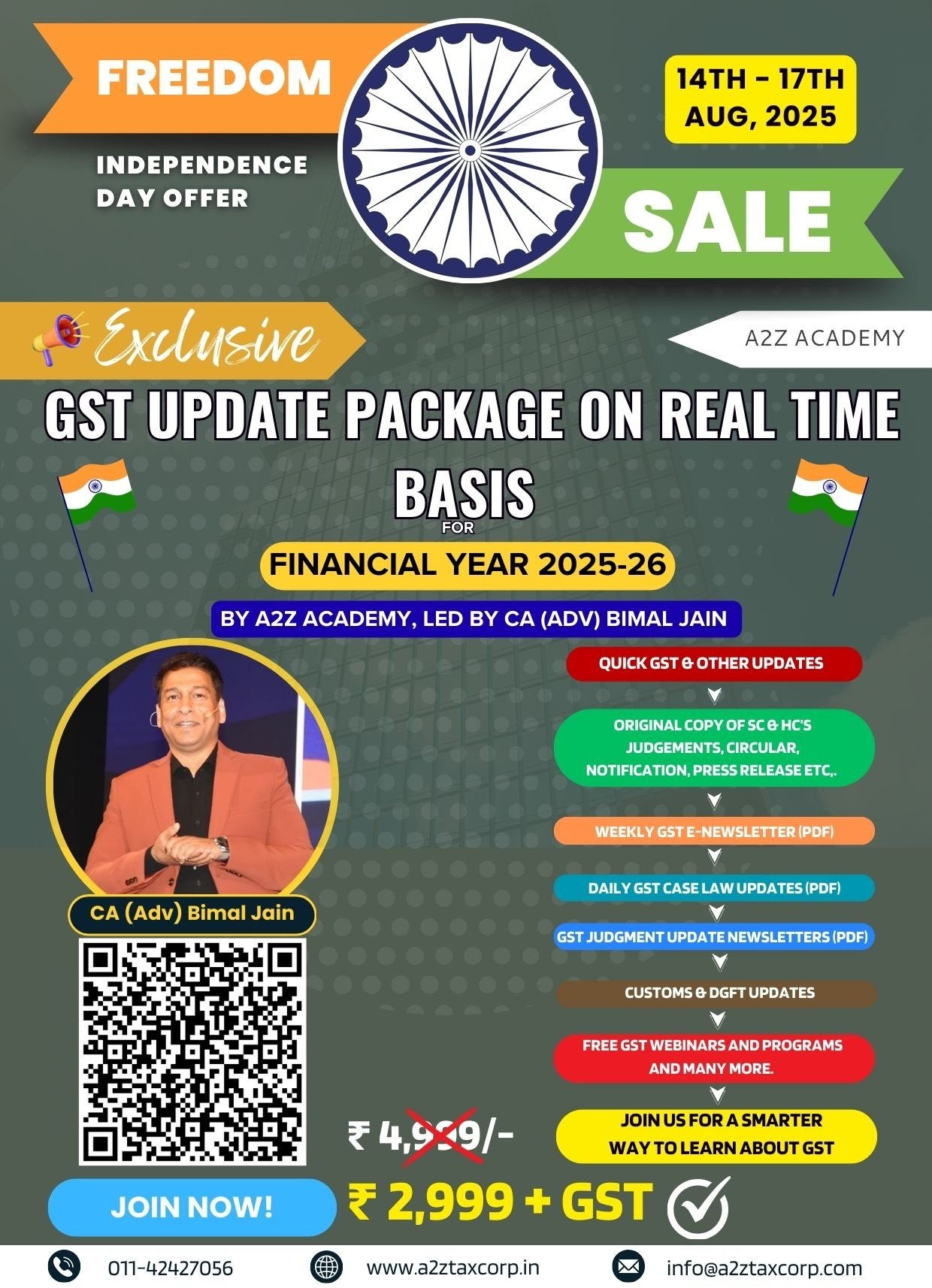
The Hon’ble Orissa High Court in the case of Pranaya Kishore Harichandan v. Union of India and Others [W.P.(C) No. 15220 of 2025 dated June 26, 2025] held that in the absence of any express restriction under Rule 3 of the GSTAT Appointment Rules, 2023, a reconstituted Search-cum-Selection Committee is legally entitled to initiate a fresh selection process for appointment to GSTAT.
Facts:
Pranaya Kishore Harichandan (“the Petitioner”) applied for appointment as a Member of the Central Goods and Services Tax Appellate Tribunal (“GSTAT”) pursuant to a vacancy circular issued by the competent authority under Rule 3 of the Goods and Services Tax Appellate Tribunal (Appointment and Conditions of Services of President and Members) Rules, 2023 (“the Rules, 2023”). The original Search-cum-Selection Committee (“the Committee”) was constituted on 5 July 2024 in accordance with Section 110(4)(b) of the CGST Act, 2017 and shortlisted candidates, including the Petitioner, for personal interaction.
Subsequently, the Committee was reconstituted on 24 April 2025 upon the former Chairman’s withdrawal. The reconstituted Committee initiated a fresh process by scrutinising applications anew and excluded the Petitioner from the list of candidates shortlisted for personal interaction. Aggrieved, the Petitioner challenged this de novo process and argued that the new Committee should have continued the process from the stage left by the earlier Committee.
Issue:
Whether a reconstituted Search-cum-Selection Committee under the GSTAT Appointment Rules, 2023 can initiate a de novo selection process in absence of any specific stipulation in the Rules?
Held:
The Hon’ble Orissa High Court in W.P.(C) No. 15220 of 2025 held as under:
- Observed that, Rule 3 of the Rules, 2023 provides for the mechanism of issuing a vacancy circular, collecting applications, scrutiny, and personal interaction, but does not expressly address the role or limits of a reconstituted Committee.
- Noted that, there is no statutory prohibition restraining a reconstituted Committee from initiating a fresh or de novo process. The phrase “as it may deem fit” in Rule 3 grants broad discretion to the Committee to determine its procedure.
- Held that, interpretative tools must promote the object of the statute and avoid rendering any provision redundant. The reconstituted Committee’s action of seeking inputs from the Intelligence Bureau (IB) and conducting fresh scrutiny of applications cannot be interfered with absent a statutory fetter.
- Further noted the Supreme Court’s decision in Union of India v. Kali Dass Batish [(2006) 1 SCC 779], reinforcing that constitutional authorities’ evaluation of integrity and suitability based on IB inputs is binding and not open to judicial review unless arbitrary and concluded that the decision of the reconstituted Committee to conduct a fresh shortlisting process was legally sustainable and not ultra vires Rule 3 of the Rules, 2023. Accordingly, the writ petition was dismissed.
CLICK HERE FOR OFFICIAL JUDGMENT COPY
(Author can be reached at info@a2ztaxcorp.com)
DISCLAIMER: The views expressed are strictly of the author and A2Z Taxcorp LLP. The contents of this article are solely for informational purpose and for the reader’s personal non-commercial use. It does not constitute professional advice or recommendation of firm. Neither the author nor firm and its affiliates accepts any liabilities for any loss or damage of any kind arising out of any information in this article nor for any actions taken in reliance thereon. Further, no portion of our article or newsletter should be used for any purpose(s) unless authorized in writing and we reserve a legal right for any infringement on usage of our article or newsletter without prior permission.


